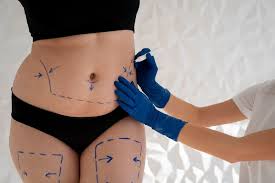Can Hormone Replacement Therapy Stop Hot Flashes?

Strong 8k brings an ultra-HD IPTV experience to your living room and your pocket.
Hot flashes are one of the most common and disruptive symptoms of menopause, affecting nearly 75% of women during this transitional phase. Characterized by sudden waves of intense heat, sweating, and flushing, hot flashes can significantly impact daily life. Many women seek effective treatments to manage these symptoms, and Hormone Replacement Therapy Dubai has emerged as a leading solution. But does it really stop hot flashes? Let’s explore the science behind hormone replacement therapy (HRT) and its effectiveness in alleviating this menopausal symptom.
Understanding Hot Flashes and Their Causes
Hot flashes occur due to hormonal fluctuations, particularly the decline in estrogen levels during perimenopause and menopause. Estrogen plays a crucial role in regulating body temperature by influencing the hypothalamus, the part of the brain responsible for thermoregulation. When estrogen levels drop, the hypothalamus becomes more sensitive to slight changes in body temperature, triggering excessive sweating and heat sensations to cool the body down—even when it’s unnecessary. These episodes can last from a few seconds to several minutes and may be accompanied by rapid heartbeat, anxiety, and chills afterward. For some women, hot flashes are mild and infrequent, while others experience severe episodes multiple times a day, disrupting sleep and overall quality of life.
How Hormone Replacement Therapy Works?
Hormone replacement therapy (HRT) supplements the body with estrogen (and sometimes progesterone) to counteract the hormonal decline during menopause. By restoring estrogen levels, HRT helps stabilize the hypothalamus, reducing its overreaction to minor temperature changes. This stabilization can significantly decrease the frequency and intensity of hot flashes.
There are different forms of HRT, including:
Systemic HRT – Delivered through pills, patches, gels, or sprays, this method distributes hormones throughout the body, effectively addressing widespread menopausal symptoms.
Low-Dose Vaginal HRT – Primarily used for vaginal dryness and urinary symptoms, this localized treatment has minimal impact on hot flashes.
Scientific Evidence Supporting HRT for Hot Flashes
Numerous studies have confirmed that HRT is highly effective in reducing or even eliminating hot flashes. Key research findings include:
The Women’s Health Initiative (WHI) Study – Despite initial concerns about long-term risks, this large-scale study confirmed that HRT significantly reduces hot flashes and night sweats. Later analyses showed that for most healthy women under 60, the benefits outweigh the risks.
A 2012 Meta-Analysis – Published in The Lancet, this review of 19 trials found that HRT reduced hot flash frequency by about 75% and severity by 87% compared to placebo.
The KEEPS Trial – Focusing on younger menopausal women, this study demonstrated that HRT not only alleviated hot flashes but also improved overall quality of life with minimal side effects when started early.
Who Is a Good Candidate for HRT?
HRT is most beneficial for:
Women experiencing moderate to severe hot flashes that disrupt daily life.
Those in early menopause (within 10 years of onset) who are generally healthy.
Women without a history of breast cancer, blood clots, or cardiovascular disease (though individual risk assessments are necessary).
A healthcare provider can help determine whether HRT is suitable based on medical history and symptom severity.
Alternatives to HRT for Hot Flashes
While HRT is highly effective, some women may prefer non-hormonal options. These include:
Lifestyle Modifications – Avoiding triggers like caffeine, alcohol, and spicy foods, dressing in layers, and using cooling techniques can help.
Phytoestrogens – Found in soy and flaxseeds, these plant-based compounds mimic estrogen and may offer mild relief.
Cognitive Behavioral Therapy (CBT) – Some studies suggest CBT can help women manage hot flashes by reducing their psychological impact.
Certain Antidepressants (SSRIs/SNRIs) – Medications like paroxetine and venlafaxine have been shown to reduce hot flashes in some women.
The Long-Term Outlook
For many women, hot flashes diminish over time, even without treatment. However, some may experience them for a decade or longer. HRT provides rapid relief, often within weeks, making it a preferred choice for those struggling with persistent symptoms. Emerging research continues to refine HRT protocols, including personalized dosing and new delivery methods, enhancing both safety and efficacy.
Conclusion
Hormone replacement therapy at Dynamic Clinic In Dubai remains the gold standard for stopping hot flashes in menopausal women. Backed by extensive research, HRT effectively stabilizes hormonal fluctuations, providing significant relief for those struggling with this challenging symptom. While alternatives exist, none match HRT’s consistent results. If hot flashes are disrupting your life, consulting a healthcare provider about HRT could be a transformative step toward regaining comfort and well-being.
Note: IndiBlogHub features both user-submitted and editorial content. We do not verify third-party contributions. Read our Disclaimer and Privacy Policyfor details.







